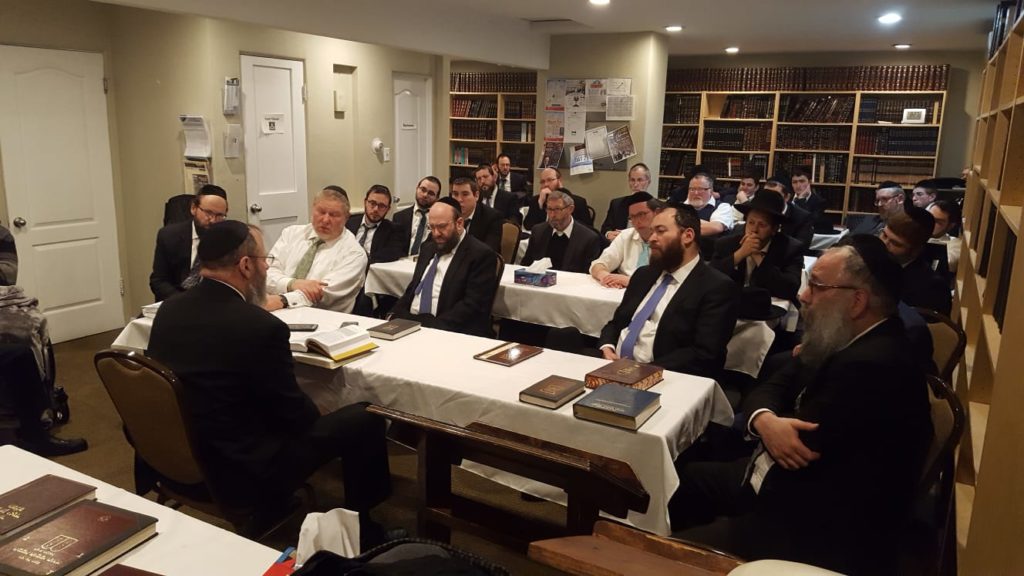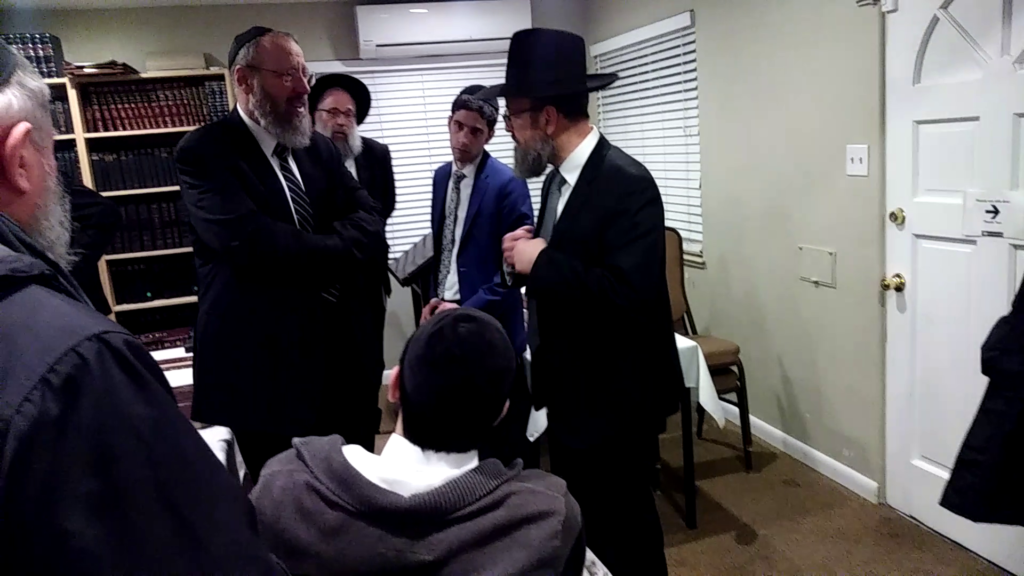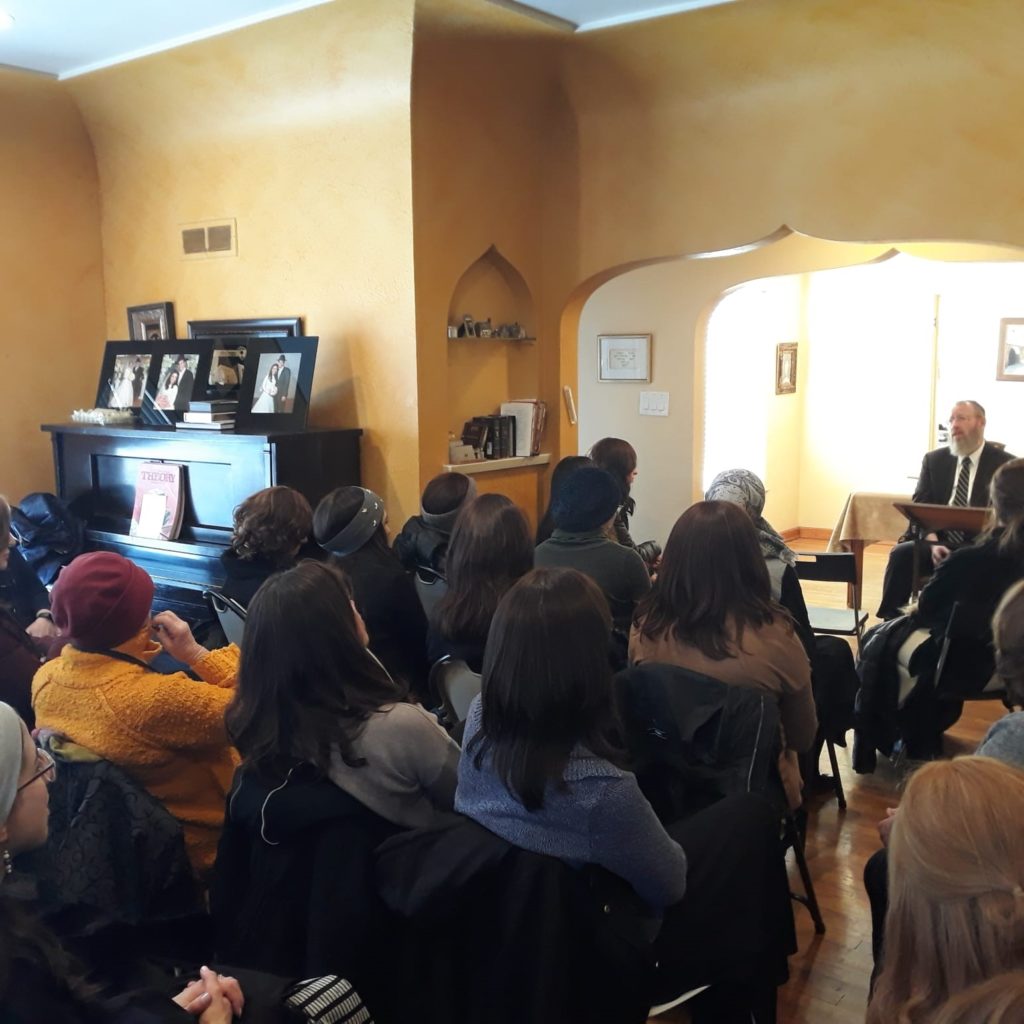Rabbi Ahron Lopiansky shlita, Rosh Yeshiva (Dean) of Yeshiva of Greater Washington, visited Denver for Shabbos Chanukah. The visit was arranged by the Denver Community Kollel and Aish of the Rockies.
Rabbi Lopiansky, a son-in-law of Rabbi Beinish Finkel, and a brother-in-law of Rabbi Nosson Tzvi Finkel, both of whom served as Rosh Yeshiva of the Mir Yeshiva of Jerusalem during their lifetimes, is a brilliant Torah scholar whose deep lectures and keen understanding of human nature and the challenges of our generation have made him a Torah giant with whom Jews from every walk of life can identify. It is thus not a surprise that in a Jewish community as diverse as Denver, Jews of all backgrounds turned out for Rabbi Lopiansky’s lectures.
“I saw mature, seasoned Torah scholars hanging onto the Rosh Yeshiva’s every word in the same audience as individuals who are in the process of discovering Torah and mitzvos,” relates Kollel Menahel Rabbi Moshe Heyman. “His tremendous breadth and depth together with being so approachable enables everyone to connect and benefit at their level.”
The Rosh Yeshiva spent Shabbos in Southeast Denver, home to a community built by Rabbi Yakov Meyer of Aish of the Rockies. The Kollel, which has been involved with the community since its founding 22 years ago, has, in recent years, opened its own bais medrash to serve the needs of the growing community.
Following a community meal on Friday ngiht at Aish, Rabbi Lopiansky delivered a chumash class based on a piece from his work Yesodei HaTorah, a collection of Torah thoughts from the medieval Torah authorities related to the parsha that were collected by Rabbi Lopiansky based on their importance as foundations and principles basic outlook and philosophy of Judaism. The Rosh Yeshiva presented an introduction regarding the importance of being knowledgeable in these principles of the medieval authorities, and then discussed a piece from the Abarbanel about different types of dreams and what they can mean.
The class was followed by an Shabbos oneg at a private home, where a unique kumzitz featured Rabbi Lopiansky discussing the deeper meaning of the words of the melodies being sung.
On Shabbos morning, Rabbi Lopiansky davened at the Southeast Kollel Torah Center and delivered a sermon following mussaf, where he discussed the haftarah of Zecharia’s vision of a Menorah and its message of a transition from an era of prophecy which existed during the first Bais Hamikdash (Temple) to an era of Torah-based wisdom that emanates from within oneself that began with the second Bais Hamikdash and which is expressed through the Yom Tov of Chanukah. Following a kiddush, the Rosh Yeshiva delivered a class on the subject of tadir veshe’aino tadir (more-frequent and less-frequent mitzvos that coincide) and its application to different areas of Chanukah.
Rabbi Lopiansky spoke again at shalosh seduos at Aish of the Rockies, where he discussed the Vilna Gaon’s approach that choshech, darkness, is not a mere absence of light but an actual creation, and its meaning in the context of Chanukah as well as Yosef’s imprisonment and subsequent rise to power.
On Motzoei Shabbos, the Rosh Yeshiva delivered a shiur for men at the Kollel West Denver bais medrash on the subject of the hallel (praise) and hoda’ah (thanks) of Chanukah, the differences between the two terms, and the practical application in one’s life. This was followed by a private question and answer session for a group of community members who study Rabbi Lopiansky’s work Orchos Chaim – Ben Torah for Life, a guide for the yeshiva student who is transitioning from yeshiva/kollel to the workplace.
On Sunday morning, Rabbi Lopiansky delivered a talk for women in West Denver on the subject of raising children in an out-of-town community. This was followed by a question-and-answer session for Kollel members and alumni.
“Rabbi Lopiansky’s visit really had a huge impact on so many levels,” says Rabbi Heyman. “Hundreds of people turned out to hear him speak, and the opportunity to experience a Torah ginat who connects with this generation in such a powerful way was a tremendous inspiration. We are looking forward to arranging future visits by the Rosh Yeshiva.”

Rabbi Lopiansky speaking at the West Denver Bais Medrash on Motzoei Shabbos 
Rosh Kollel Rabbi Aron Yehuda Schwab speaking with Rabbi Lopiansky
Delivering shiur to women
